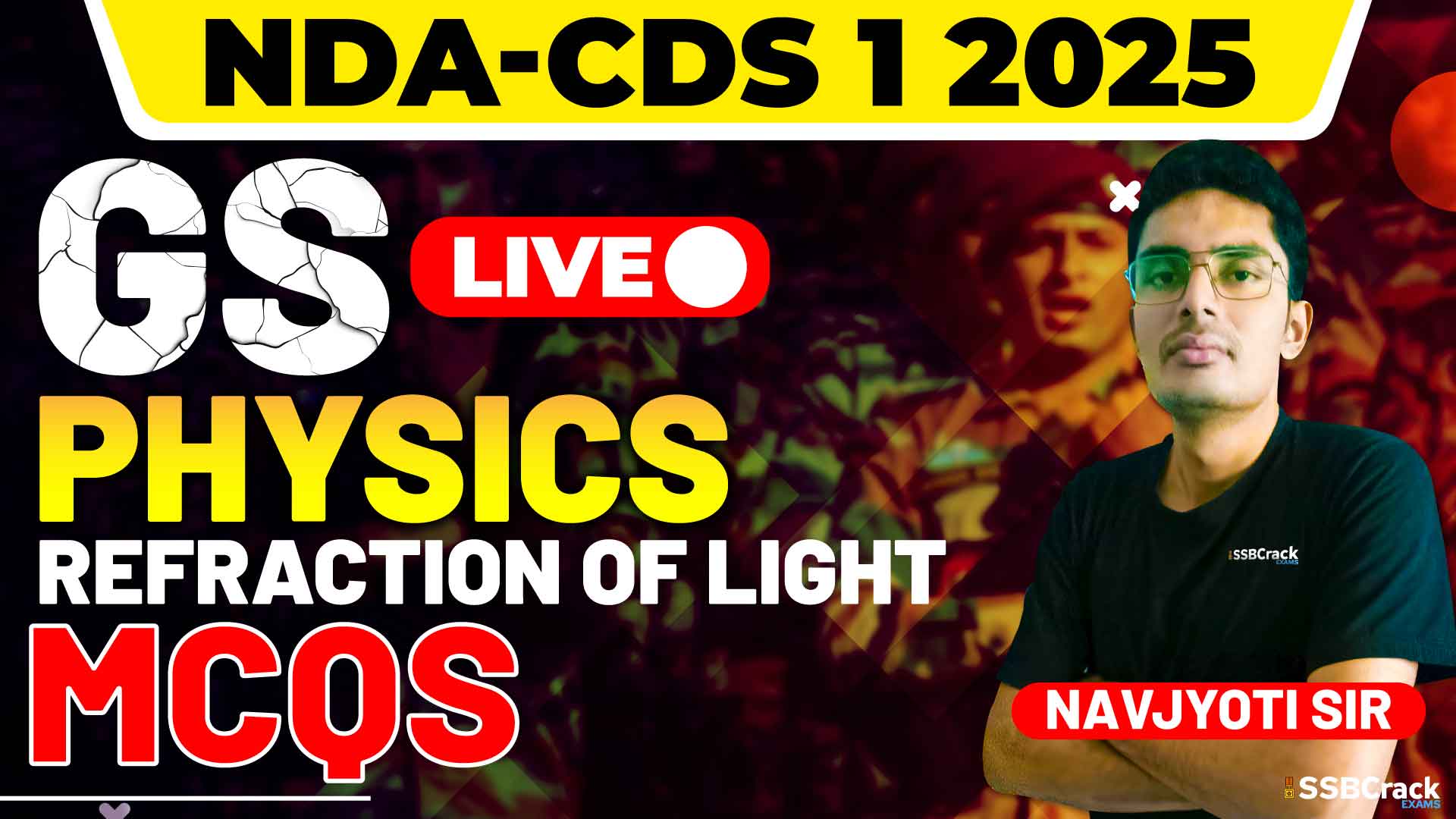The National Defence Academy (NDA) and Naval Academy (NA) exams, along with the Combined Defence Services (CDS) exams, are challenging gateways to prestigious careers in the Indian Armed Forces. Among the key Physics topics tested in these exams, “Refraction of Light” holds great importance. A recent class was conducted to revise this topic using multiple-choice questions (MCQs) from previous years and predicted patterns, tailored to the exam requirements. This blog highlights the key takeaways from the session and offers strategies to prepare effectively for this topic.
Importance of Refraction of Light in Exams
Refraction is a fundamental concept in optics and often features prominently in the Physics sections of NDA and CDS exams. Questions typically focus on:
- Understanding the bending of light as it passes through different media.
- Analyzing scenarios involving lenses, prisms, and real-world optical phenomena.
- Applying concepts of refraction to solve problems involving image formation and ray diagrams.
With its blend of theory and practical applications, “Refraction of Light” offers aspirants a unique opportunity to score well in the Physics section. Familiarity with this topic also builds a strong foundation for tackling other areas of optics.
Importance of Practicing MCQs
Practicing MCQs is one of the most effective ways to revise and master the topic of refraction. MCQs not only reinforce theoretical understanding but also:
- Enhance problem-solving speed and accuracy, which are crucial for competitive exams.
- Familiarize aspirants with exam-specific question patterns and difficulty levels.
- Highlight weaker areas, enabling targeted revision.
The class emphasized practicing MCQs regularly, particularly from past exams, to build confidence and improve exam performance.
Strategies to Prepare for Refraction of Light
- Understand the Basics:
- Begin by revisiting core concepts such as the laws of refraction, refractive index, and critical angle.
- Study real-life applications of refraction, such as optical fibers, lenses, and mirages, to make the topic relatable.
- Focus on Lenses and Prisms:
- Pay special attention to the properties of convex and concave lenses, as well as prisms.
- Understand image formation by lenses, including the size, orientation, and position of images.
- Solve MCQs Regularly:
- Practice MCQs from past NDA and CDS exams to gain insight into question trends.
- Include scenario-based questions that involve ray diagrams or practical applications.
- Use Visual Aids:
- Create diagrams to visualize how light rays refract through lenses and prisms.
- Summarize key concepts in charts or tables for quick reference during revision.
- Avoid Common Mistakes:
- Pay attention to details in the questions, such as the type of lens or medium.
- Double-check answers involving ray diagrams to ensure accuracy.
- Leverage Study Resources:
- Use reliable preparation books and online tutorials that focus on optics and refraction.
- Attend revision classes and interactive sessions to clarify doubts and reinforce learning.
- Participate in Mock Tests:
- Attempt mock tests regularly to simulate real exam conditions.
- Analyze performance in mock tests to identify strengths and areas for improvement.
Conclusion
The “Refraction of Light” class provided an opportunity to thoroughly revise this essential topic through MCQs. It highlighted the importance of consistent practice, conceptual clarity, and strategic preparation. By dedicating time to mastering refraction, aspirants can secure valuable marks in the Physics section of NDA, NA, and CDS exams. Remember, a disciplined approach and regular practice are the keys to success. Best wishes for your preparation journey!







